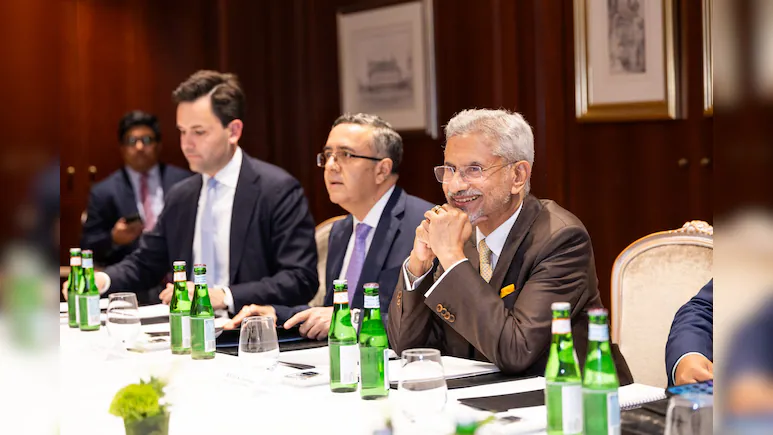In a candid interview with a leading European newspaper, India’s External Affairs Minister, Dr. S. Jaishankar, clarified the circumstances surrounding the recent ceasefire between India and Pakistan, firmly crediting the Indian military’s decisive operations and dismissing suggestions that the United States played a mediating role.
When questioned about whether the United States should be thanked for facilitating the ceasefire, Dr. Jaishankar emphasized that the cessation of hostilities was a direct result of engagements between the military commanders of both nations. He explained that prior to the ceasefire, the Indian armed forces executed precise strikes targeting Pakistan’s key airbases and air defense systems, effectively compelling Pakistan to halt its aggression. Dr. Jaishankar remarked, “The Indian military’s actions were decisive and made it clear that Pakistan was ready to stop the conflict. It was our armed forces that created the conditions for the ceasefire.”
The ceasefire, reached in early May, came after a period of heightened conflict triggered by a terror attack in the Pahalgam region of Jammu and Kashmir that resulted in the loss of 26 innocent lives. India responded with a series of targeted airstrikes, aiming to dismantle terror networks operating across the border. Following this, Pakistan retaliated with drone attacks on Indian military and civilian targets. India then launched further strikes damaging Pakistan’s military infrastructure, escalating the confrontation to a critical point.
Amid the tensions, direct communication between the military leadership of both countries facilitated discussions leading to the ceasefire. Dr. Jaishankar noted that any calls for peace came from Pakistan’s military side, underscoring that the initiative did not stem from external diplomatic interventions.
Responding to claims by U.S. officials that Washington played a pivotal role in brokering the ceasefire, Dr. Jaishankar clarified that while American diplomats expressed concern and maintained communication with Indian counterparts, the U.S. role was limited to dialogue rather than mediation. He stressed that India insisted any cessation of hostilities must be requested by Pakistan directly through military channels, a condition that Pakistan fulfilled.
Addressing questions about the risk of nuclear escalation during the conflict, Dr. Jaishankar dismissed such concerns as exaggerated. He described the Indian strikes as “measured and carefully calibrated” to avoid escalation. According to him, the Indian military’s capability to neutralize Pakistan’s air defenses quickly curtailed further hostilities, making any nuclear conflict unlikely.
Dr. Jaishankar’s statements highlight India’s approach to handling cross-border conflicts through its military strength and direct bilateral engagement, rather than relying on international mediation. This stance reflects India’s broader foreign policy principles of self-reliance and regional stability, emphasizing the importance of sovereign decision-making in security matters.
The recent ceasefire marks a cautious step towards de-escalation, yet the underlying tensions between India and Pakistan remain complex and sensitive. The minister’s remarks reinforce India’s commitment to safeguarding its security interests while encouraging peaceful resolution through direct communication.



